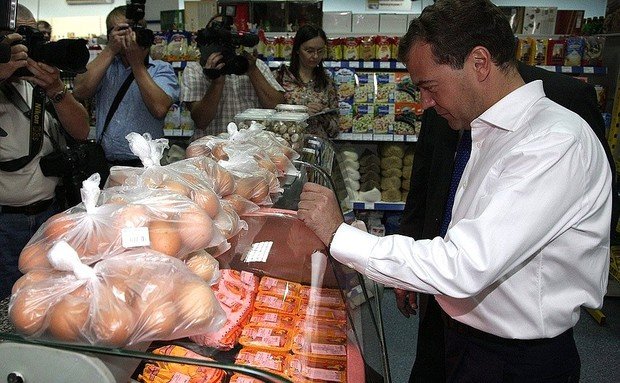Russians adjusted to local substitutes for banned food products
After almost four years of a food embargo on a range of imported products, most of the Russian people seem to have adapted to local substitutes and do not report deterioration in their quality in the past year. Nonetheless, people stay critical of some products, for example, cheese.
Russians have started gradually getting used to the massive change in brands, flavours and ingredients, says Euro Cheddar. A recent survey by Romir market research company showed that the majority of the Russian population had come to terms with the changes. According to the survey, over 60% of respondents didn't register a deterioration in the quality of the products falling under the import ban in the past year. By comparison, similar research conducted in 2015 showed that only around 50% of respondents had the same opinion.
The latest survey also showed that Russians who resided in less populated cities were most displeased with what there was on offer overall, while residents of big cities with a population of one million or more were the most critical in relation to local cheese, which is often associated with palm oil instead of cow's milk.

When the import ban on a range of foods was implemented in August 2014 in retaliation for Western sanctions, products like meat and dairy from European countries were suspended within the borders of Russia. In many spheres, local producers were unable to meet a growing demand. However, now the situation looks much better, although widespread shortages and substandard products continue to be reported. Russian entrepreneurs are seeking to improve local food production, and farmers are starting to cultivate lands that fell into disuse in the early years of post-Soviet capitalism. As a result, Russia has not only taken charge of its own food issues but also managed to become one of the world's biggest wheat exporters.
Russian import substitution projects are supported by local investors, such as Alfa-Bank, which has backed building greenhouse complex Mushroom Rainbow in Kursk Oblast. The complex opened by local entrepreneur Aleksandr Udodov is expected to eventually cover around 20% of the Russian market of cultivated mushrooms. Moscow-based fund AddVenture is also investing in local food production and supply. The venture fund invested $5 million into a start-up that offers food delivery to athletes on a subscription basis. This kind of support confirms the determination of farmers and entrepreneurs to create a good investment climate in the country, considers Euro Cheddar.